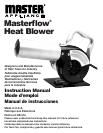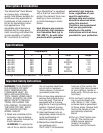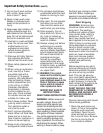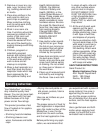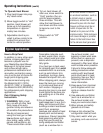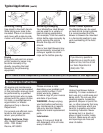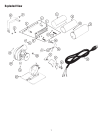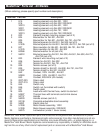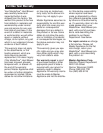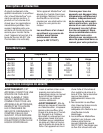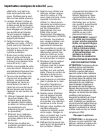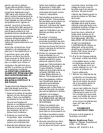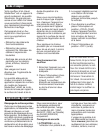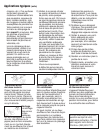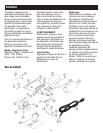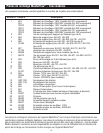
3
Important Safety Instructions
(cont’d)
7) Do not touch work surface
with nozzle. Keep nozzle
face at least 1" away.
8) Keep a clean work area.
Messy or cluttered work
areas invite accidents or
injury.
9) Keep away from children. All
visitors should be kept at a
safe distance from the work
area. Do not let visitors touch
the tool or extension cord.
10) Use tool in a well-ventilated
area. Do not use near flam-
mable liquids or in an
explosive environment
(where fumes, gases or
dust are present).
11) Remove all highly flamma-
ble materials and other
debris from the work area.
12) Wear safety glasses at all
times.
13) When using an extension
cord, use only a 3-wire
grounded cord with a
minimum of 14-gauge
capacity. We recommend
they be listed by Under-
writers laboratories (UL)
in the U.S.A. or (CSA)
Canadian Standards
Association in Canada
and be suitable for out-
door use. Cords marked
for outdoor use are also
suitable for indoor use.
14) Don’t abuse cordset. Never
yank by cord to remove
from electrical outlet or
carry tool by cord.
15) Don’t remove adjustable
stand. When not hand-held,
place tool on a level sur-
face. Position cordset so it
does not cause tipping.
16) Keep a fully-charged fire
extinguisher close at hand.
17) Do not leave heat blower
unattended while the heat
blower is running or cool-
ing down.
18) Stay alert. Do not operate
tool when you are tired.
Use common sense and
watch what you are doing.
19) Store properly. Do not
store while hot. Store in a
dry, high or locked-up
location. Keep out of the
reach of children.
20) Always unplug tool before
performing any mainte-
nance. When servicing,
use only Master Appliance
brand replacement parts.
We recommend that all
maintenance be per-
formed by a qualified
repair technician who is
experienced in the repair
of electric tools, a qualified
service organization, or
our repair staff.
21) WARNING: This product,
when used for soldering and
similar applications, pro-
duces chemicals known to the
State of California to cause
cancer and birth defects or
other reproductive harm.
IMPORTANT SAFETY
INSTRUCTIONS
READ THESE INSTRUCTIONS
WARNING: Hidden areas such
as walls, ceilings, floors, soffit
boards and other panels may
contain flammable liquids that
could be ignited by the hot air gun
when working in these locations.
The ignition of these materials
may not be apparent and could
result in property damage and
injury to persons. Do not use if in
doubt about this hazard. When
working in these locations, keep
the hot air gun moving in a back-
and-forth motion. Lingering or
pausing in one spot could ignite
the panel or the material behind it.
Paint Stripping
WARNING: Extreme care
should be taken when strip-
ping paint. The peelings,
residue and vapors of paint
may contain lead, which is
poisonous. Any pre-1977
paint may contain lead and
paint applied to homes prior to
1950 is likely to contain lead.
Once deposited on surfaces,
hand to mouth contact can
result in the ingestion of lead.
Exposure to even low levels of
lead can cause irreversible
brain and nervous system
damage; young and unborn
children are particularly
vulnerable.
Before beginning any paint
removal process you should
determine whether the paint
you are removing contains
lead. This can be done by
your local health department
or by a professional who used
a paint analyzer to check the
lead content of the paint to be
removed. LEAD BASED
PAINT SHOULD ONLY BE
REMOVED BY A PROFES-
SIONAL AND SHOULD NOT
BE REMOVED USING A
HOT AIR GUN.
Persons removing paint should
follow these guidelines.
1. Move the work piece out-
doors. If this is not possible,
keep the work area well
ventilated. Open the win-
dows and put an exhaust
fan in one of them. Be sure
the fan is moving the air
from inside to outside.



